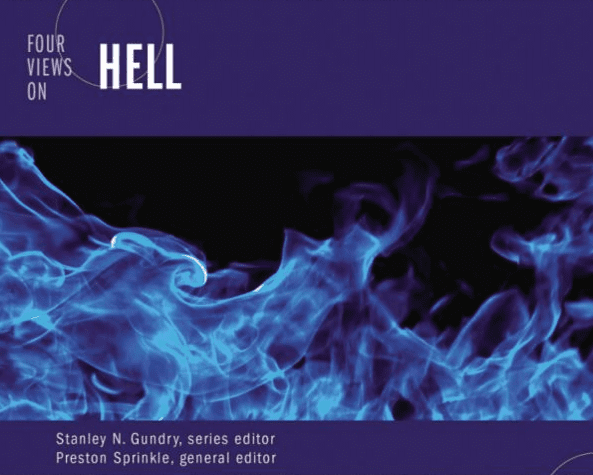 Well-known evangelical — originally conservative and then more progressive — Clark Pinnock came to view eternal conscious punishment as an “outrageous doctrine” (Rethinking Hell, 60). He begins his famous essay with Augustine upon whom he lays responsibility for the traditionalist view. Augustine believed God would torment sinners/the wicked mentally, psychologically and physically endlessly — and when Augustine was challenged how that could happen without their being destroyed, Augustine believed God would ongoingly perform miracles to keep them alive. Quoting John Gerstner, Jonathan Edwards believed the same.
Well-known evangelical — originally conservative and then more progressive — Clark Pinnock came to view eternal conscious punishment as an “outrageous doctrine” (Rethinking Hell, 60). He begins his famous essay with Augustine upon whom he lays responsibility for the traditionalist view. Augustine believed God would torment sinners/the wicked mentally, psychologically and physically endlessly — and when Augustine was challenged how that could happen without their being destroyed, Augustine believed God would ongoingly perform miracles to keep them alive. Quoting John Gerstner, Jonathan Edwards believed the same.
Pinnock thinks this is like the person who delights in watching a cat being tortured in a microwave, and taking delight in it.
Pinnock sees no reason to soften hell into blaming the person or talking about diminishment (which seems to have CS Lewis in view). Augustine was enough of a determinist/predestinationist that human responsibility wasn’t the escape on this doctrine; God chose and God didn’t choose, and those whom God didn’t choose are those God has chosen to torment endlessly. My, I just don’t know people can believe this sort of thing. Pinnock says Edwards would simply respond that we “think God as more loving and merciful than he actually is…” and “torturing the wicked presents no problem to God” but he observes that Edwards himself simply did not say things that his system affirmed, so Gerstner — an Edwards student — clarified what Edwards taught.
To accuse the critics of the traditional view of sentimentality won’t work. Pinnock asks right back: “What drives my opponent? Is it hard-heartedness and the desire for eternal retribution?” (60). “Surely,” he says, “a God who would do such a thing is more nearly like Satan than like God” (60). Here he appeals to ordinary human standards, which if we reject we tend to reject rational thinking. He asks again, “Does the one who told us to love our enemies intend to wreak vengeance on his own enemies for all eternity?” (60).
This is not a matter of sentimentality or liberalism, in spite of what folks like JI Packer have said. Notice this view is held by folks who, on all other doctrines, are considered straight-laced: J.W. Wenham, J.R.W. Stott, P.E. Hughes, S. Travis and E. Fudge. That kind of knife cuts both ways. Truth is not determined by who believes something but what the text says. Pinnock thinks things went wrong from Augustine on, so he has Augustine in view — and the man was wrong on a number of fronts so perhaps also on this one.
We are back to the standard conclusions: the Bible’s emphasis is the idea of destruction, not eternal, conscious torment. “At the very least it should be obvious,” Pinnock concludes after marshalling the basics on destruction/perishing in the Bible, “to any impartial reader that the Bible may legitimately be read to teach the final destruction of the wicked without difficulty” (65). I’d like to see how folks respond to this claim: Does the language of destruction at least suggest the possibility of reading the Bible as teaching final destruction? What evidence counters his view?
He thinks conditional immortality is not the best way to frame it but he thinks the Platonic theory of the immortality of the soul is at the core of ECT. His view is annihilationism.
Again, ECT makes God “a bloodthirsty monster” (67). Softening hell — Hodge and Warfield sought to minimize the numbers, CS Lewis focused on human responsibility — won’t solve the theodicy: it makes a theodicy hopeless. Unending punishment is pointless in a theory of justice. It is crude retribution. Does ECT not suggest an eternal cosmological dualism?











